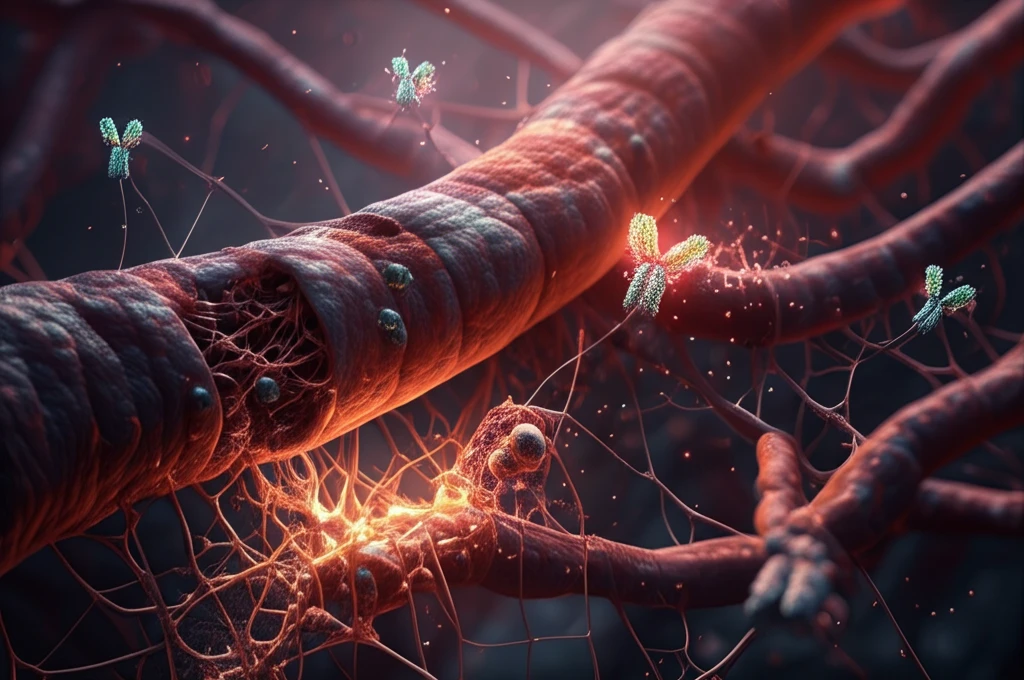
Unlocking Muscle Health: How Autoantibodies Offer New Hope for Myositis
"Groundbreaking research identifies the pathogenic role of autoantibodies in immune-mediated necrotizing myopathy (IMNM), paving the way for targeted therapies and improved patient outcomes."
Myositis, a group of rare diseases characterized by muscle inflammation, can significantly impact a person’s quality of life. Among these conditions, immune-mediated necrotizing myopathy (IMNM) stands out as a particularly severe form. IMNM is distinguished by muscle fiber death and weakness. While the precise causes have been elusive, recent research is shedding light on the critical role of autoantibodies.
Autoantibodies are immune proteins that mistakenly attack the body's own tissues. In IMNM, these rogue antibodies target specific muscle components, leading to inflammation and damage. Identifying these autoantibodies and understanding their mechanisms of action is crucial for developing more effective treatments.
A groundbreaking study published in the journal Annals of the Rheumatic Diseases has made significant strides in unraveling the mystery of IMNM. The researchers demonstrated, for the first time, that autoantibodies from patients with IMNM are directly pathogenic, meaning they actively cause the disease. This discovery has profound implications for how we diagnose and treat this debilitating condition.
Decoding the Autoantibody Connection in Myositis

The study focused on two types of autoantibodies commonly found in IMNM patients: anti-SRP (signal recognition particle) and anti-HMGCR (3-hydroxy-3-methylglutaryl-CoA reductase). These autoantibodies target proteins essential for muscle function and repair. To investigate their role in IMNM, the researchers conducted a series of experiments using mice.
- Patient-derived anti-SRP and anti-HMGCR autoantibodies are pathogenic in vivo (in living organisms).
- These autoantibodies cause muscle weakness and damage in mice.
- The complement system is involved in the mechanism by which these autoantibodies cause disease.
- Active immunization against SRP and HMGCR provokes disease.
A Brighter Future for Myositis Patients
This research marks a significant step forward in our understanding of IMNM and opens up exciting new avenues for treatment development. By targeting the production or activity of these pathogenic autoantibodies, or by modulating the complement system, researchers hope to develop more effective therapies that can improve the lives of those affected by this debilitating condition. Plasma exchange and B-cell targeting therapies are also supported by the findings, and the research supports the evaluation of complement-targeting therapies.
